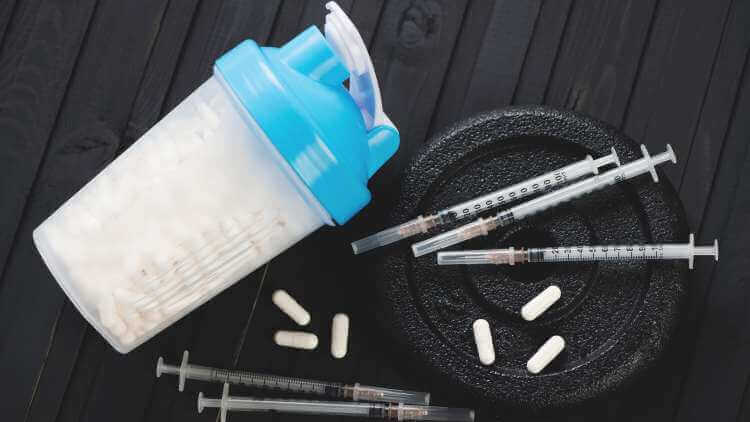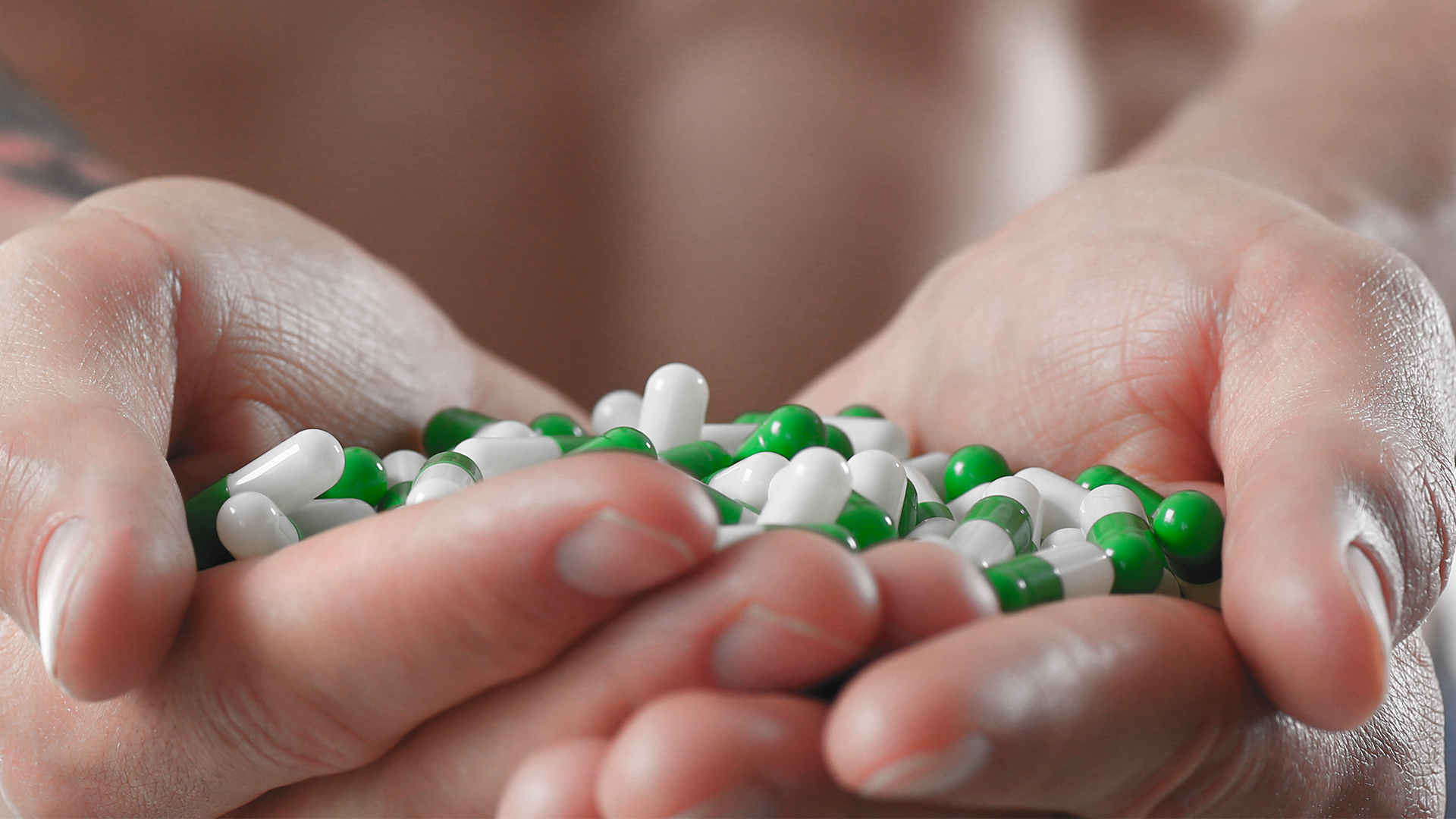Steroids are a very powerful class of drugs. They can create wonderful improvements for the human body and help people eliminate symptoms of hormonal deficiencies. Within the wide variety of steroids, it's crucial to distinguish between corticosteroids and anabolic steroids.
Understanding Corticosteroids
Corticosteroids, often just called “steroids,” are synthetic versions of cortisol. They're used to treat inflammatory conditions such as:
- Arthritis
- Lupus
- Crohn’s disease
- Asthma
- Cancer
- Rashes
These steroids are different from anabolic steroids, which are used for muscle building. Corticosteroids don't provide the muscle-enhancing benefits of anabolic steroids. Instead, they play a vital role in managing inflammation and auto-immune diseases.
Anabolic Steroids and Their Uses
The focus of this discussion is on anabolic steroids, commonly used for working out. Anabolic steroids are androgenic, meaning they affect your body’s balance of testosterone. Testosterone is crucial for muscle growth, which is why these steroids can have such significant effects.
However, it’s important to understand that if you are a healthy person, your body is already regulating the amount of testosterone it produces. Interfering with this balance goes against your body’s natural order. Some people can use steroids responsibly without seeing negative side effects, or alternatively, you can use Legal Steroids which are available.
Overusing steroids or using them in a manner other than prescribed can have catastrophic effects. These side effects can include:
- Enlarged forehead
- Shrinking of the testicles
- Increased aggression or irritability
- Mood swings
- Baldness
- Growth of breasts
- Increased chance of developing cardiac problems
- And, yes, weight gain
Side effects don’t usually manifest if steroids are used properly. However, in today’s world, it's all too easy to misuse them. Many are bought online from irresponsible retailers who don’t provide proper safety information. Online steroids could also contain a mixture of compounds – you never know.
So why do steroids cause weight gain?
Steroids can cause weight gain for a couple of reasons, both of which are unhealthy. Besides speeding up muscle production, steroids make you extremely hungry. While increased muscle growth requires more calories and protein, steroids can make you hungrier than necessary, even during workouts, leading to weight gain.
Additionally, steroids can promote fluid retention. You know those bodybuilders you see sometimes at the gym who look kind of … puffy? That’s fluid retention at work.
Holding more fluid than your body needs leads to weight gain. Steroids can cause fluid retention by affecting the balance of sodium and other electrolytes. Electrolytes are vital for maintaining proper hydration and fluid processing.
In addition to causing weight gain, fluid retention can intensify high blood pressure problems, which many steroids already cause.
More on the Mechanisms of Weight Gain
Steroids alter the body’s electrolyte and water balances, affecting how it uses and stores crucial nutrients like lipids, amino acids, protein, carbohydrates, and glucose. This disruption in metabolism is another culprit in weight gain. When your body's regular processing is thrown off, it can lead to increased appetite, causing you to consume more than your body needs.
-
Increased Appetite: Beyond just needing more calories for muscle growth, steroids can make you feel hungrier than is necessary, adding extra pounds.
-
Fluid Retention: As mentioned, fluid retention makes you appear heavier. This is due to steroids messing with your body's sodium levels and electrolyte balance, causing that puffy appearance.
-
Fat Redistribution: Steroids can change where your body stores fat, specifically increasing fat in the abdomen, face, and neck. Even if you manage to control your weight, this redistribution can alter your appearance.
Understanding these factors helps explain why weight gain is a common side effect, affecting a significant portion of individuals who use steroids. By recognizing these changes, you can better manage and anticipate the effects while using these medications.
In addition to causing us to gain weight, fluid retention can also cause problems on its own. In particular, fluid retention can intensify problems associated with high blood pressure, which many steroids already cause.
When considering corticosteroid use, both the dosage and duration play crucial roles in the likelihood of experiencing weight gain. Typically, the higher the dosage and the longer the duration of use, the greater the chance of putting on extra pounds. For instance, short-term use, spanning just a few days to weeks, tends to have minimal side effects.
However, research highlighted in the
When corticosteroid treatment ends, the weight gained during the therapy typically begins to decrease as your body adjusts. This process isn’t immediate but usually unfolds over a period of six months to a year. During this time, the body's balance is restored naturally, helping to shed the extra pounds acquired during the medication period.

How to Avoid Gaining Weight on Steroids
Firstly, monitor your total calorie consumption. This likely means keeping a journal of everything you eat. Seems excessive? Consider the alternative. What’s worse, keeping a journal or gaining unnecessary pounds of water weight?
Moderating your diet is also crucial. Avoid refined carbohydrates, like pasta or white bread, which are empty calories. These spike blood sugar levels, and considering steroids make you more sensitive to these spikes, eating refined carbohydrates while on steroids is dangerous.
Refined carbohydrates also digest quickly, making you hungry sooner than if you eat quality protein and complex carbohydrates.
One effective way to prevent overeating is to eat more often. Hold on, I know that sounds contradictory. Eating multiple small meals throughout the day provides a consistent stream of nutrients. As long as you watch your calories, this is a healthier way to live.
Don't forget to drink a lot of water. Water is essential for hydration before, after, and during a workout and helps fill your stomach. The more water you drink, the less inclined you'll feel to overeat when you're not truly hungry.
Choose Belly-Filling Foods
Opt for foods that are both satisfying and low in calories, such as fresh fruits and vegetables. These foods can help curb your hunger without adding unnecessary calories to your diet.
Eat Smaller, More Frequent Meals
One of the best ways to prevent yourself from overeating is actually to eat more often. Hold on, I know that sounds like a contradiction. What you should do – what everyone should do – is eat a whole bunch of small meals throughout the day, instead of three big meals. This way your body will have a consistent stream of nutrients flowing through it. As long as you watch your calories, this is a much better and healthier way to live.
Include Protein with Every Meal
Incorporate a source of protein in each meal. Whether it’s meat, cheese, or legumes, protein helps keep you full longer. Research suggests that meals with 25-30 grams of protein are especially effective at reducing appetite and helping manage weight.
Stay Hydrated with Water
Another important thing to remember is that you need to drink a lot of water. Not only is water necessary to hydrate you before, after, and during a workout, but it helps to fill your stomach up. The more water you drink, the less you’re going to feel like stuffing yourself when you’re not actually hungry. Additionally, drinking water can help boost your metabolism, with studies showing increased energy expenditure after water consumption.
Maintain Physical Activity
Staying active is key, even when on steroids. It might be tough if you’re not feeling your best, but finding an activity you enjoy can make all the difference. A workout buddy can also provide motivation. Exercising not only burns calories but can also boost your mood and energy levels.
By integrating these strategies into your daily routine, you can effectively manage weight gain while on corticosteroids, maintaining both your health and wellness.
How Physical Activity Helps Manage Steroid-Related Weight Gain
Weight gain is a common side effect of steroid use, but incorporating regular physical activity can be a powerful strategy to mitigate these effects. Here's how:
Boosts Metabolism
Engaging in regular exercise increases your metabolic rate, helping your body burn more calories even when at rest. This increased calorie burn is crucial for balancing the extra weight often associated with steroid use.
Builds Lean Muscle
Strength training exercises, such as weightlifting or resistance band workouts, are excellent for building lean muscle mass. More muscle means a higher resting metabolic rate, which can offset the fat gain linked to steroids.
Reduces Fat Accumulation
Cardiovascular exercises, like jogging, cycling, or swimming, are effective for reducing the buildup of fat in the body. These activities promote the use of stored fat as energy, which can help in managing overall weight.
Enhances Mood and Motivation
Exercise is known to release endorphins, the "feel-good" hormones, which can improve mood and increase motivation. Staying motivated is essential for maintaining a consistent exercise routine, especially when addressing weight concerns.
Tips for Staying Active
- Find an Enjoyable Activity: Choose something you look forward to, whether it's dancing, hiking, or participating in a local sports league.
- Partner Up: Exercising with a friend can keep you accountable and make workouts more enjoyable.
- Set Realistic Goals: Start small with short, manageable sessions, and gradually increase the intensity and duration as your fitness level improves.
Incorporating these strategies can make a significant difference in managing weight gain associated with steroid use, equipping you with greater control over your health and wellness journey.
Why is Consulting a Doctor Essential Before Changing Steroid Medication?
Steroids are powerful medications that require careful management. Attempting to alter your dosage or stopping them without medical advice can have serious repercussions. Here’s why consulting a doctor is crucial:
-
Avoid Dangerous Side Effects: Abruptly discontinuing steroid use can trigger adverse effects such as muscle stiffness, joint pain, and fever. Professional guidance ensures these risks are minimized.
-
Prevent Health Complications: Your doctor can help tailor a tapering plan, which is essential to avoid complications that could arise from stopping steroids suddenly.
-
Manage Your Condition Effectively: Steroids are often prescribed for controlling specific disorders. Changing your regimen without expert advice could lead to a relapse or worsening of your condition.
-
Personalized Medical Insights: Every patient’s health circumstances are unique. Doctors can offer insights based on your medical history, ensuring your health remains stable during any adjustments.
For these reasons, it’s imperative to seek professional advice before making any changes to your steroid medication regimen. Your health is too important to leave to chance.
Commonly Prescribed Cortosteroids
When it comes to commonly prescribed corticosteroids, several options frequently make the list. Each year, millions of prescriptions are written in the United States for these powerful anti-inflammatory medications. Here are some of the most widely prescribed corticosteroids:
- Prednisone: Often used to treat conditions such as arthritis, blood disorders, and breathing problems.
- Prednisolone: Preferred for managing allergies, skin conditions, and eye inflammation.
- Cortisone: Typically administered for joint pain and many types of arthritis.
- Hydrocortisone: Utilized for its effectiveness in addressing a variety of skin conditions and hormone disorders.
- Budesonide: Commonly prescribed to manage asthma and inflammatory bowel disease.
These drugs work by reducing inflammation and suppressing the immune system, helping manage a wide range of medical conditions.
Understanding How Corticosteroids Combat Inflammation
Corticosteroids, often referred to simply as steroids, are powerful medications used to reduce inflammation in the body. Their effectiveness in treating various inflammatory conditions is rooted in their ability to modulate the immune response.
The Immune System's Role
Typically, your immune system's job is to fend off infections by targeting foreign invaders like bacteria and viruses. It does this through a complex chemical process designed to protect you.
The Problem of Misfiring Immune Systems
Sometimes, however, the immune system misidentifies normal, healthy cells as threats. This malfunction can lead to the immune system attacking its own body, creating tissue damage and inflammation.
How Corticosteroids Help
-
Reduction of Inflammatory Chemicals: Corticosteroids work by decreasing the production of chemicals that trigger inflammation. This helps in alleviating symptoms like swelling, redness, and pain.
-
Suppression of Immune Activity: These steroids also dampen the overall activity of the immune system, preventing it from mistakenly targeting healthy tissues.
By addressing both the chemical and immune response aspects of inflammation, corticosteroids provide relief for those with autoimmune conditions and other inflammatory disorders.
Reducing fluid retention
As a bodybuilder, your primary concern should be fluid retention, not appetite. Working out already makes you less susceptible to weight gain from excess calories. How can you reduce fluid retention?
One recommended solution is to eat a diet rich in potassium and low in sodium. Sodium promotes fluid retention, while potassium reduces it. Ideally, consume no more than 2 grams of sodium daily, but many people consume upwards of 30 grams.
Start eating low-salt and salt-free foods. Potassium-rich foods like bananas, apricots, tomatoes, spinach, and baked potatoes are excellent choices. Baked potatoes – especially sweet potatoes – are great sources of complex carbohydrates. Complex carbs digest slowly, providing long-lasting energy and keeping you full longer.
Over 299,434 purchases
Over 509,389 bottles sold
Over 30,563,340 pills taken








